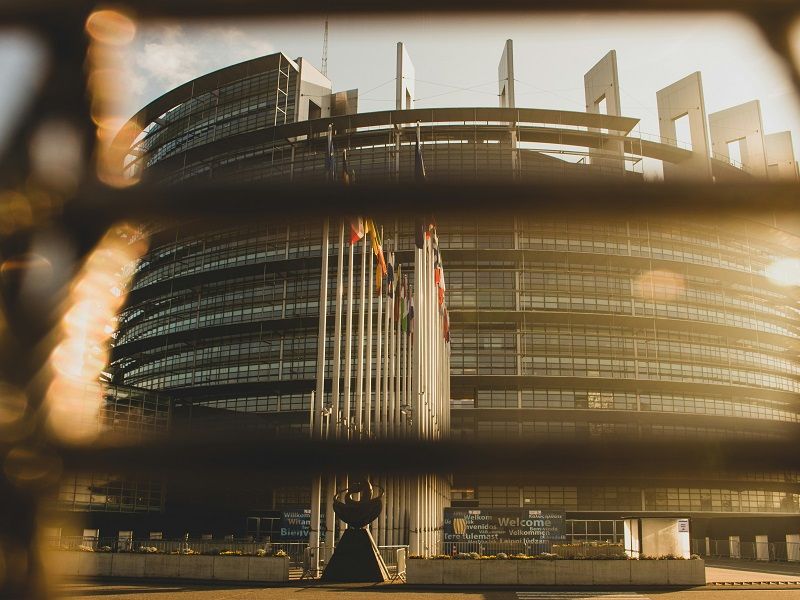From lobbying to misdirection: Armenia’s influence campaign in Brussels

Armenia is rapidly losing control of the narrative it has tried so hard to sustain — that of a country striving for peace and democratic reform, while maintaining strategic partnerships with both the East and the West. While its leadership proclaims a commitment to European integration and regional peace, its actions—both at home and abroad—reveal a different reality. The recent response by European Commission Vice-President and EU High Representative Kaja Kallas to a written question by MEP Emmanuel Fragkos has once again exposed how Yerevan and its powerful diaspora lobby operate within EU institutions to distort facts, manipulate perceptions, and obstruct genuine dialogue.
In her response, Kallas reaffirmed the EU’s strategic engagement in the South Caucasus, emphasizing the importance of peace, stability, and cooperation—particularly in the context of the normalisation process between Azerbaijan and Armenia. She also reiterated that human rights and the rule of law are key pillars of the EU's relationship with Azerbaijan. Yet the backdrop to her reply was not a constructive inquiry into improving regional stability, but rather a politically loaded attack disguised as parliamentary oversight.
Fragkos’s written question demanded to know whether Azerbaijan’s Foreign Minister had promised to release “320 political prisoners,” repatriate Armenian detainees, and provide conditions for the “dignified return” of the Garabagh Armenians—all framed as obligations supposedly mandated by the International Court of Justice. These allegations are drawn directly from Yerevan’s narrative and rest on highly contestable interpretations of international rulings and facts on the ground.
Such tactics are not new. The Armenian lobby, particularly in Western capitals, has mastered the art of leveraging democratic institutions to advance a narrow, nationalistic agenda. It routinely invokes the language of human rights, only to weaponise it against those who challenge its position. When international organisations like PACE or the European Parliament adopt balanced or unfavourable stances, it is Armenian actors themselves who lash out, casting doubt on the credibility of these institutions.
This hypocrisy is increasingly difficult to ignore. The same voices that accuse Azerbaijan of democratic backsliding remain silent about Armenia’s own failures—constitutional ambiguity, delayed reforms, growing militarisation, and a lack of political will to resolve outstanding issues with its neighbours. For example, while Prime Minister Nikol Pashinyan insists his government is committed to signing a peace agreement with Azerbaijan, he has yet to amend Armenia’s constitution to remove irredentist claims. Nor has Yerevan made any real progress in dissolving the obsolete OSCE Minsk Group framework, which Azerbaijan considers a relic of the past.
Even more telling is Armenia’s behaviour along the border. While speaking in European capitals about peace and normalization, Armenian armed forces continue to provoke incidents along the Azerbaijan-Armenia border. These escalations are then misrepresented by Armenian media outlets to portray Baku as the aggressor, creating a false image that feeds directly into lobbying efforts in Brussels and beyond. This tactic of provocation followed by victimhood has become a hallmark of Yerevan’s approach to diplomacy.
In her statement, Kaja Kallas rightly emphasised that the EU has conveyed concerns to Azerbaijan about domestic legal practices and political freedoms. These concerns are legitimate and must be addressed. But the EU must also be wary of one-sided narratives designed not to promote reform or justice, but to demonize a geopolitical rival. The selective outrage demonstrated by Armenian-aligned actors undermines the EU’s credibility as a neutral mediator.
The irony is that by misusing democratic platforms for narrow political ends, the Armenian lobby damages the very institutions it claims to uphold. Instead of supporting reconciliation and mutual compromise, it fuels division and perpetuates zero-sum politics. And when these same institutions do not yield to pressure, it is Yerevan’s allies who are first to accuse them of bias or betrayal.
It is clear that the peace process between Armenia and Azerbaijan requires more than rhetoric—it demands political courage and an end to manipulation. If Armenia genuinely seeks peace, it must take concrete steps: revise its constitution, stop military provocations, disband outdated international mechanisms, and engage with sincerity rather than subterfuge.
The EU, for its part, must continue to support dialogue while resisting pressure from partisan lobbies that seek to hijack its agenda. Kaja Kallas’s reaffirmation of the EU’s balanced role in the region is a welcome step. But going forward, Brussels must insist not only on human rights and legal compliance from Azerbaijan—but also on honesty, consistency, and accountability from Armenia.
Because peace cannot be built on posturing and propaganda. It requires truth—and the willingness to act on it.
Here we are to serve you with news right now. It does not cost much, but worth your attention.
Choose to support open, independent, quality journalism and subscribe on a monthly basis.
By subscribing to our online newspaper, you can have full digital access to all news, analysis, and much more.
You can also follow AzerNEWS on Twitter @AzerNewsAz or Facebook @AzerNewsNewspaper
Thank you!

